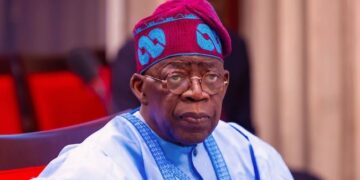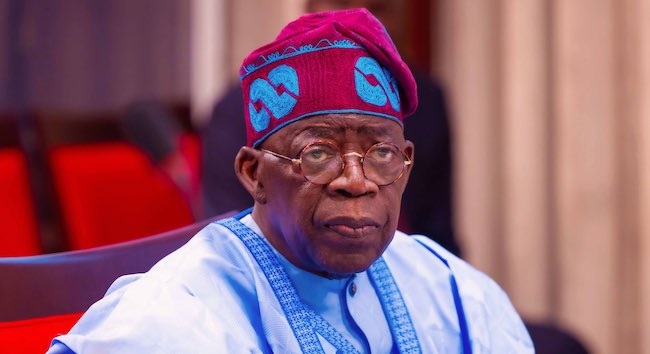By John Ikani
President Bola Tinubu has announced a comprehensive set of measures to alleviate the economic challenges resulting from recent reforms.
The President made the announcement on Monday in his first nationwide broadcast since assuming office in May.
Here are 7 key highlights of President Tinubu’s address:
1. Necessary Evil:
President Tinubu stressed that he understands the plight of Nigerians, adding that the ongoing hardship was necessary for future economic prosperity.
According to him: “Our economy is going through a tough patch and you are being hurt by it. The cost of fuel has gone up. Food and other prices have followed it. Households and businesses struggle,” he said in a national broadcast Monday evening.
“Things seem anxious and uncertain. I understand the hardship you face. I wish there were other ways. But there is not. If there were, I would have taken that route as I came here to help not hurt the people and nation that I love.”
2. Boosting Manufacturing:
The government plans to allocate N75 billion over the next nine months, beginning July 2024, to strengthen the manufacturing sector. This initiative will provide loans to 75 scalable enterprises with a 9% annual interest rate, repayable over a maximum of 60 months. Working capital credits with a 12-month tenor will also be available. The goal is to drive economic growth through the real sector and expedite Nigeria’s industrialization and GDP expansion.
3. Support for MSMEs:
To address the funding challenges faced by Micro, Small, and Medium-sized Enterprises (MSMEs) and the informal sector, N125 billion will be allocated. This financial support aims to ease the limited funding issue for a sector that constitutes 58% of Africa’s largest economy but often lacks adequate capital. Under this arrangement, 1 million micro-scale businesses will receive a total of N50 billion by next March. Each of the 774 local governments will also receive N50,000.
4. N75 Billion Startup Intervention:
A fund of N75 billion is proposed to support 100,000 start-ups and MSMEs. Entrepreneurs can secure loans ranging from N500,000 to N1 million at a 9% annual interest rate, repayable over 36 months. This initiative will facilitate early-stage businesses with innovative solutions, enabling them to access single-digit loans to expand their operations.
5. Agricultural Support:
The National Assembly approved N500 billion for all-year-round farming on 500,000 hectares of farmland. Specifically, N50 billion each will be granted for rice and maize production on 150,000 hectares, and N50 billion each for wheat and cassava cultivation over 100,000 hectares. This move is part of the broader response to the state of emergency declared by the president on food production, following a 25.3% year-on-year increase in food inflation.
6. Transport Support:
N100 billion has been set aside by the Nigerian Government to acquire 3,000 twenty-seater buses powered by compressed natural gas. These buses will be deployed across all states within the next nine months. Transport companies will have the opportunity to obtain credit at a 9% annual interest rate, repayable over five years, based on their travel intensity per capita. This measure aims to provide affordable transportation after the abolition of costly fuel subsidies in May, which caused sharp spikes in travel fares.
7. Minimum Wage:
President Tinubu promised that a new minimum wage will be implemented once talks with labour unions conclude. While this pay increase is essential to help workers cope with the impact of fuel subsidies and foreign exchange reforms, it may also contribute to inflationary pressures already in motion due to these factors.



































